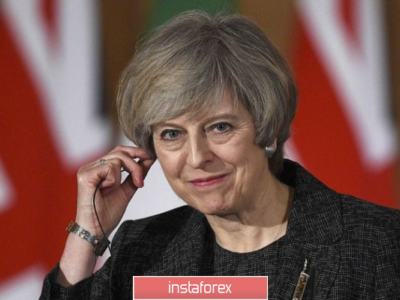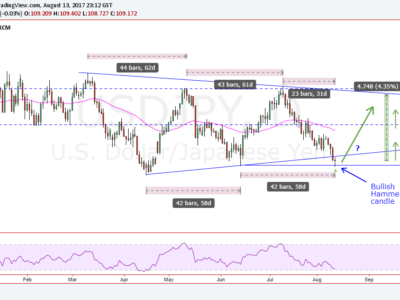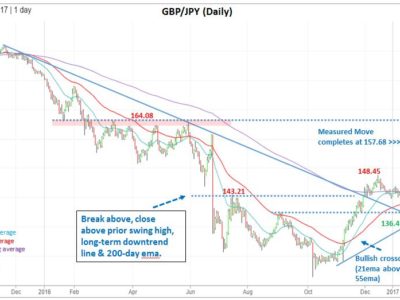Navigating Foreign Exchange (FX) Markets in a Brave New World
By: Langley Perry
In today’s interconnected global economy, more money is crossing international borders than ever before. As international trade expands, increased specialization naturally results from countries’ comparative advantages[1] for inputs into the production of goods or services (labor, natural resources, etc.). This has lead to a proliferation of corporations with an international footprint, as well as international inter-company relationships. Many United States-based companies are paying vendors, suppliers, and service providers located on other countries, and must often make these payments in the payees’ native currency. This has lead to an increasing need for foreign exchange (FX) services that are easily accessible to individuals and companies that are not FX specialists or traders.
Many consumer-facing FX providers and international payments processors have cropped up in response to the increasing need for fast, easy, and efficient FX and international payments. These have arisen in conjunction with the growth of international money services businesses (MSBs); an international money transmission frequently must include a foreign exchange between the sender’s and the recipient’s currencies.
In some instances, the international strength of the U.S. Dollar (USD), the British Pound Sterling (GBP), and the E.U. Euro (EUR) and other currencies leads to a recipient accepting a foreign currency in lieu of its native currency. In addition to the USD, GPB, and EUR, the International Monetary Fund’s (IMF) Currency Composition of Official Foreign Exchange Reserves (COFER) also includes the Japanese Yen (JPY), Swiss Franc (CHF), Canadian Dollar (CAD), and Australian Dollar (AUD). COFER statistics measure the amount of monetary authorities’ reported claims on currencies held by non-residents; the USD makes up the overwhelming majority of allocated reserves, measured at 63% in the 4th quarter of 2014. International monetary authorities (not including the U.S. Federal Reserve) reported claims totaling nearly $4 billion USD held by non-U.S. residents in Q4 2014.
The international foreign exchange market is the largest, most liquid market in the world, with a slew of central banks and major corporate banks involved in the constant flow of currencies. Despite the vast size and importance of the FX market, the majority of real-time foreign exchanges (“spot FX”) are not directly regulated by a central FX-focused regulator, prompting some to call for increased centralized regulation.[2] However, U.S. and other governmental agencies and bodies heavily regulate the major commercial banks that engage in the majority of FX transactions, which has lead to some degree of regulatory control over the FX market. In 2013, several major banks were implicated in an FX “rate rigging” scandal stretching back at least a decade, with lasting effects that reverberate to this day.[3]
While the FX spot trading market amongst traders at large banks (the “interbank market”) has its share of competitive and collusive history, there are international organizations dedicated to facilitating international financial stability such as the Bank for International Settlements, based in Basel, Switzerland.[4]
As indicated above, with the increasing need for international payments and the participation of non-banks and non-FX dealers/brokers in foreign exchange, whether for purchases, payments, or investment, a secondary online “over the counter (OTC)” or retail FX market has emerged. “Retail customers participate in the secondary OTC market with retail dealers, albeit typically at different prices and with higher spreads than those that occur in the interbank market.”[5] The emergence of this secondary market has naturally led to a host of regulatory rules and required compliance obligations.
The Securities and Exchange Commission issued a Final Rule in July 2013, “Retail Foreign Exchange Transactions,” allowing broker-dealers registered under the Securities Exchange Act of 1934 to engage in retail foreign exchange, provided they comply with the Exchange Act and its rules and regulations, and rules of any self-regulatory organizations the broker-dealer is a member of.[6]
Many retail FX dealers must register as a Retail Foreign Exchange Dealer (RFED) with the U.S. Commodity Futures Trading Commission (CFTC), or as a Futures Commission Merchant (FCM) with the National Futures Association.
The Commodity Exchange Act, as amended, allows only certain regulated entities to register as RFEDs with the CFTC and engage in retail FX transactions. The Financial Industry Regulatory Authority (FINRA) has issued supplemental rules governing the retail FX market to capture the retail FX activities of broker-dealers that were not captured by the CEA and its amendments. Due to the high risk inherent in the volatile FX market, and since retail customers engage FX dealers (who stand to profit from an unbalance of knowledge between the parties) as the counterparty in retail FX trades, these rules have sought to protect retail customers from dishonest marketing and unethical behavior. In FINRA Regulatory Notice 08-66, issued in 2008, the agency listed the following actions in the retail FX market (among others) that would constitute a violation of “Just and Equitable Principles of Trade”: Failing to adequately disclose the risks associated with forex trading; Manipulating or displaying false quotes; Offering mock, or “demonstration” accounts that do not accurately reflect the risks of forex trading, and others.
Many online retail FX trading platforms have sprung up over the past decade-plus, increasing access to the FX market beyond commercial banks. As compliance obligations continue to develop and individual and business consumers continue to adapt to engaging in retail FX, it is incumbent upon retail FX providers to be mindful of the applicable compliance obligations, and concerned with best practices for consumer service.
References:
[1] Comparative Advantage: When one nation’s opportunity cost of producing an item is less than another nation’s opportunity cost of producing that item. A good or service with which a nation has the largest absolute advantage (or smallest absolute disadvantage) is the item for which they have a comparative advantage. http://www.bls.gov/bls/glossary.htm
[2] “Forex Market Regulation: Who Can Really Police This Global Market?” Roger Aitken, FORBES. http://www.forbes.com/sites/rogeraitken/2014/08/11/forex-market-regulation-who-can-really-police-this-global-market/
[3] “Traders Said to Rig Currency Rates to Profit Off Clients,” Liam Vaughan, Gavin Finch, & Ambereen Choudhury, BLOOMBERG BUSINESS. http://www.bloomberg.com/news/articles/2013-06-11/traders-said-to-rig-currency-rates-to-profit-off-clients
[4] “[T]he Bank for International Settlements (BIS) is the world’s oldest international financial organisation. The BIS has 60 member central banks, representing countries from around the world that together make up about 95% of world GDP.
The mission of the BIS is to serve central banks in their pursuit of monetary and financial stability, to foster international cooperation in those areas and to act as a bank for central banks.” https://www.bis.org/about/index.htm
[5] FINRA Regulatory Notice 08-66, “Retail Foreign Currency Exchange,” Nov. 2008. https://www.finra.org/sites/default/files/NoticeDocument/p117362.pdf












